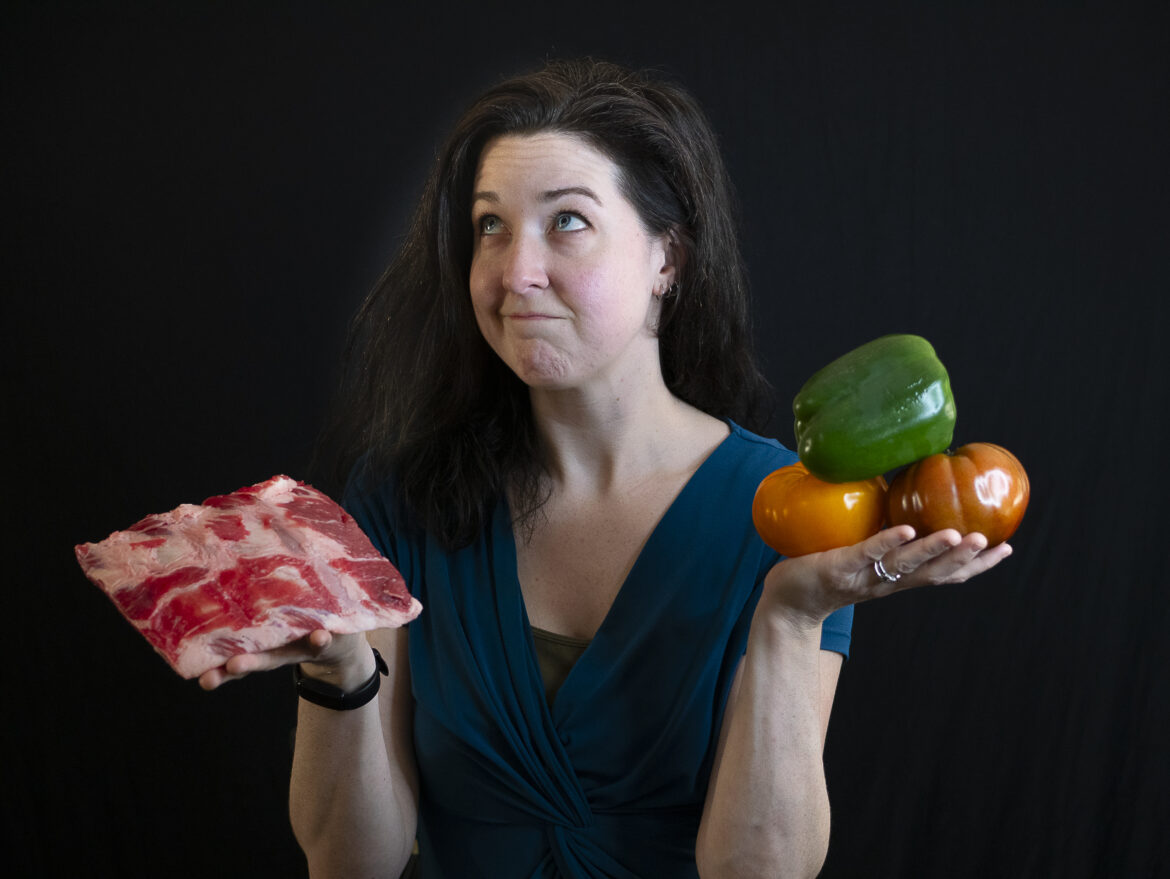As a society, people can change a myriad of their habits to mitigate climate change and global warming. What people eat, and what they don’t eat, can change the world in positive ways.
If it’s the earth you want to save, meat must go.
Meat and animal product production is a heavy burden on the environment. According to The Vegan Society, soya beans are grown in Brazil not so much for human consumption as for feed for animals meant for meat production in Europe.
According to The Vegan Society, “The vast amount of grain feed required for meat production is a significant contributor to deforestation, habitat loss, and species extinction.”
Extensive research has shown that living a vegan lifestyle will impact the environment and vulnerable ecosystems favorably.
According to an article from Vox.com, just eating a plant-rich diet will reduce more greenhouse gas emissions than installing solar panels on a home, switching to an electric vehicle (or public transit), composting food scraps and reducing plastic use, according to the climate change mitigation network Project Drawdown.
From the Vox article, “according to Project Drawdown, the two most effective individual actions are food-related: reducing food waste and eating a “plant-rich” diet—one that contains less meat and more plant-based ingredients than the typical American diet.
There are now many alternatives to eating meat. Even established, big corporations have jumped on the trend.
According to an article from Business News Daily, many people are seeking to purchase food from companies that implement environmentally sustainable practices. The article says that “over the past five years, there has been a 71 percent rise in online searches for sustainable goods globally, according to The Economist Intelligence Unit.”
The article goes on to say that although consumers may have ignored sustainable business methods and practices in the past, they are now embracing them, and the public wants businesses to commit to protecting nature and natural systems.
Vegan-conscious consumers can pass on their lifestyle ideals and habits to their children. Hypothetically, children with vegan parents will grow up to have their children and pass on the vegan diet and create a zeitgeist where a meatless diet will be the new norm.
Passing on vegan eating habits to the next generations may make society healthier at large, reducing instances of avoidable health issues, such as obesity, type 2 diabetes and colorectal cancer. Mitigating said illnesses and health conditions may alleviate some of the strain on the medical healthcare system as well as the nation’s economy.
An article in The Vegan Review said, “It’s essential to let children know that there is not one standard way of living, so the old-fashioned notion that animals are food should be countered with the growing awareness and popularity of veganism.”
According to the Vegan Society, a plant-based diet requires only one-third of the land needed to support a meat and dairy diet. Avoiding animal products can reduce the strain on food and other resources, which is especially important to address current socio-economic problems.
It is time to trade in meat-lovers pizza for a savory three-bean salad. Time to seize the day with a tofu scramble instead of a bacon sandwich. The children, and their children, will appreciate it when they are living in a world set up by their parents to still be viable and filled with robust vegetation.




